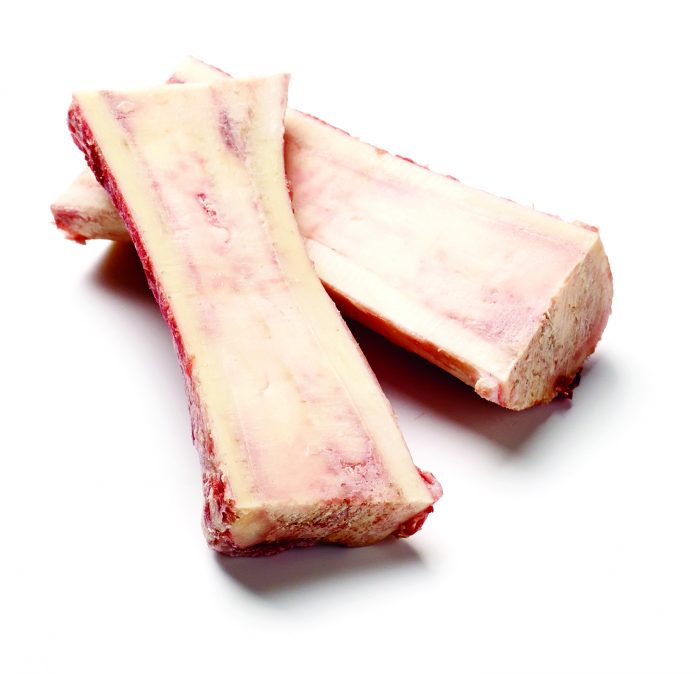Former teacher creates job and wealth by crushing bones to make animal feeds
By Special Correspondent
Isaac Njuguna’s workshop near the busy Dagoretti Market can be mistaken for one of the many abattoirs that dot the area. In the compound, a strong stench of rotting flesh and bones waft from the workshop, which is just a few meters away from the famous slaughterhouses of Dagoretti. In the populous Dagoretti area, slaughterhouses have been the lifeline of the locals, with most people eking out a living from the meaty business. The resultant booming business brings with it an undesirable byproduct; the bones, which are carelessly thrown about when people have feasted on the meat.
For Njuguna, a former teacher, the bones are a gold mine. He crushes them to make bone meal, an essential element when it comes to manufacture of animal feeds.
Since 1998, this has been his preoccupation. Though he earned a meager income when he worked as an untrained teacher, today he rakes in a handsome income from bones. His thriving business has created jobs for him and others in an area where most people are jobless.
For Njuguna, a former teacher, the bones are a gold mine. He crushes them to make bone meal, an essential element when it comes to manufacture of animal feeds.
Since 1998, this has been his preoccupation. Though he earned a meager income when he worked as an untrained teacher, today he rakes in a handsome income from bones. His thriving business has created jobs for him and others in an area where most people are jobless.
Here’s how he morphed into a job creator.
After completing his secondary school education at Meru School in 1983, he started working as an untrained teacher, where he earned a monthly income of Kes1400. Frustrated with the low pay, he q quit his job after five years and joined his villagemates in scavenging for jobs in the nearby Dagoreti slaughterhouses.
Once he got a job, he could work extra hard, to a point where he had saved enough to open his own butchery bin the nearby Ngong town.
It’s in Ngong town where he inadvertently bumped into the bone crushing business and liked it.
Though he couldn’t get enough information from the owner of the business about how to start such a venture, he was ingenious enough to create his own bone crushing machine from scratch.
With a bone crusher, he realized that he needed lots of electricity to run it. He almost gave up after he learnt that power installation could set him back with Kes400000.
Undeterred, he sold his meat business and took a leap of faith to venture into the bone crushing industry.
Once he took his first sample of bone meal to the Kenya Bureau of Standards for testing, it was given a clean bill of health, paving the way for more than two decades of bone meal production.
Today, he supplies the bone meal in bulk, to animal feed manufacturers like Hemco Feeds, Sigma Feeds, and Belfast Companies, some of which buy the product in batches of 2 tons, 5 tones or 10 tons.
His milling plant can process up to two tons of bone meal in a day. At any given day, the miller employs up to eight people, with the number rising to 12 when business is good.
Looking back, he delights in seeing the huge impact the bone business has had in his backyard.
“Bones from the slaughterhouses were disposed off anyhowly. Dogs would carry them farther and farther and the village would be drowning in the stench of rotting meat and bones.”
He believes that his bone factory is a way of ridding the village of bones, which can be a health hazard if not well handled.
Having achieved great success in the bone crushing business, he plans to set up a fully-fledged factory with a higher capacity as he aspires to meet the rising demand for bone meal.
As an old hand on the job, he has a few words of wisdom that can benefit young entrepreneurs. “Persist in whatever you do and you’ll’ ultimately reap rewards.”
For him, he says the stench of the rotting meat and bones is not so pleasant, but he persists to get money out of it all.
After completing his secondary school education at Meru School in 1983, he started working as an untrained teacher, where he earned a monthly income of Kes1400. Frustrated with the low pay, he q quit his job after five years and joined his villagemates in scavenging for jobs in the nearby Dagoreti slaughterhouses.
Once he got a job, he could work extra hard, to a point where he had saved enough to open his own butchery bin the nearby Ngong town.
It’s in Ngong town where he inadvertently bumped into the bone crushing business and liked it.
Though he couldn’t get enough information from the owner of the business about how to start such a venture, he was ingenious enough to create his own bone crushing machine from scratch.
With a bone crusher, he realized that he needed lots of electricity to run it. He almost gave up after he learnt that power installation could set him back with Kes400000.
Undeterred, he sold his meat business and took a leap of faith to venture into the bone crushing industry.
Once he took his first sample of bone meal to the Kenya Bureau of Standards for testing, it was given a clean bill of health, paving the way for more than two decades of bone meal production.
Today, he supplies the bone meal in bulk, to animal feed manufacturers like Hemco Feeds, Sigma Feeds, and Belfast Companies, some of which buy the product in batches of 2 tons, 5 tones or 10 tons.
His milling plant can process up to two tons of bone meal in a day. At any given day, the miller employs up to eight people, with the number rising to 12 when business is good.
Looking back, he delights in seeing the huge impact the bone business has had in his backyard.
“Bones from the slaughterhouses were disposed off anyhowly. Dogs would carry them farther and farther and the village would be drowning in the stench of rotting meat and bones.”
He believes that his bone factory is a way of ridding the village of bones, which can be a health hazard if not well handled.
Having achieved great success in the bone crushing business, he plans to set up a fully-fledged factory with a higher capacity as he aspires to meet the rising demand for bone meal.
As an old hand on the job, he has a few words of wisdom that can benefit young entrepreneurs. “Persist in whatever you do and you’ll’ ultimately reap rewards.”
For him, he says the stench of the rotting meat and bones is not so pleasant, but he persists to get money out of it all.
























